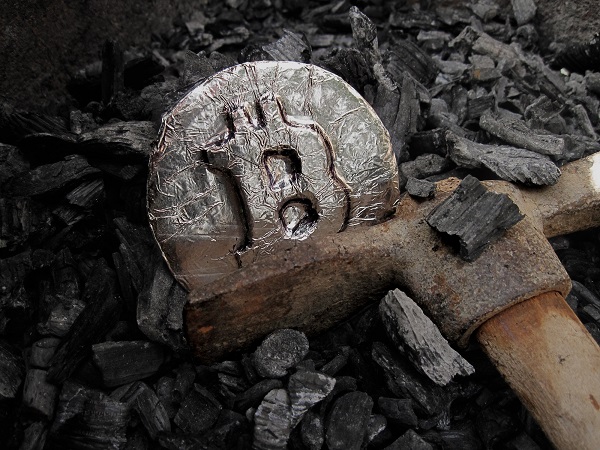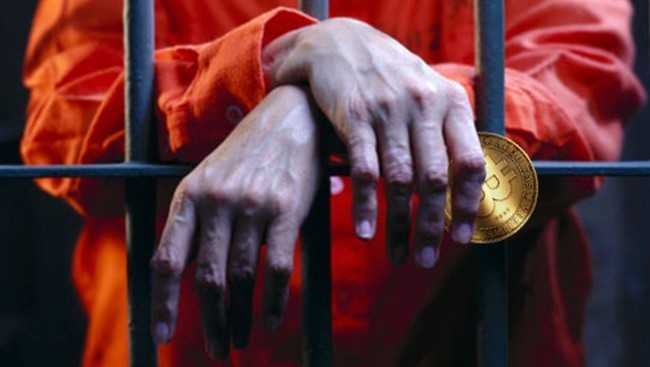 Cryptocurrency based on blockchain technology, including Bitcoin, has many advantages. It is an independent method of transferring value with low commissions and fast transactions independent of any government, while cryptocurrency is easy to share to millionths without losing its value. All these statements were true until the cryptocurrency did not become so popular that in some countries it became recognized as legal tender or electronic asset. From this point on, due to the blockchain's openness of some cryptocurrencies (Bitcoin, Ethereum, Ripple and others), black lists of crypto wallet began to appear on which stolen cryptocurrency stored. Any cryptocurrency that passes through such wallets is automatically blacklisted, and then all its movements are tracked as they black list more and more crypto wallets. Cryptocurrency stored on such wallets automatically becomes outlawed and at this moment the cost of such a “dirty” cryptocurrency starts to fall sharply, because buying and cashing a dirty bitcoin or ethereum in your own name of will automatically make you at least a witness of a theft or worse yet an accomplice in a crime.
Cryptocurrency based on blockchain technology, including Bitcoin, has many advantages. It is an independent method of transferring value with low commissions and fast transactions independent of any government, while cryptocurrency is easy to share to millionths without losing its value. All these statements were true until the cryptocurrency did not become so popular that in some countries it became recognized as legal tender or electronic asset. From this point on, due to the blockchain's openness of some cryptocurrencies (Bitcoin, Ethereum, Ripple and others), black lists of crypto wallet began to appear on which stolen cryptocurrency stored. Any cryptocurrency that passes through such wallets is automatically blacklisted, and then all its movements are tracked as they black list more and more crypto wallets. Cryptocurrency stored on such wallets automatically becomes outlawed and at this moment the cost of such a “dirty” cryptocurrency starts to fall sharply, because buying and cashing a dirty bitcoin or ethereum in your own name of will automatically make you at least a witness of a theft or worse yet an accomplice in a crime.
Discount on the purchase of "illuminated" Bitcoin in black markets can reach several tens of percent, depending on the volume of purchase. And buyers for such a product is also not small, especially from countries where cryptocurrencies do not have legal force. These countries include Russia and most of the CIS countries, i.e. buyers of cryptocurrency in the CIS countries have a great chance to buy just such a dirty bitcoin, but at the market price.
Updated:
The article about "dirty" bitcoin was written in the middle of 2019, when there was no such close attention of the authorities to cryptocurrencies. Now in 2023, when the authorities of some countries are legalizing bitcoin, and others are waging a whole war on cryptocurrencies, introducing their own digital currencies (CBDC) in parallel, it can be noted that the problem with the free circulation of cryptocurrencies has worsened significantly. Because many companies (exchanges, exchangers and even DeFi services) before making any exchange, deposit or withdrawal of cryptocurrency, it is mandatory to carry out the so-called AML check of your crypto assets. AML is short for Anti-Money Laundering. In simple words, if any crypto assets (bitcoin, ethereum, USDT, etc.) are transferred to your crypto wallet, your wallet will also be marked as not trustworthy. And the more such transfers, the more likely it is to be blacklisted. After that, you will not be able to cash out your crypto assets in the usual way. You can check your wallet or a counterparty's wallet on any of the services offering such verification services, for example, AMLbot.
If in 2019 the opportunity to get the blocking of your crypto assets was from the category of horror stories, then in 2023 this AML check is a mandatory and necessary tool for everyone involved in cryptocurrencies. It got to the point that not only the buyer can be blacklisted, but also the seller, who will send his "clean" assets to the buyer to the address already on the blacklist. And there are more and more such addresses every day: Blocked Tether USDT. How, for what and why?. Accordingly, it is also necessary to approach the security of your crypto savings in modern reality with great caution, because. Your cryptocurrency can be easily blocked by adding just a couple of lines to the already existing lists of "not reliable people". And as practice shows, it is easy to get into such a list (sometimes it is enough to have only the citizenship of the wrong country) and, first of all, this applies to stablecoins USDT, USDC, BUSD and cryptocurrencies with POS mining. In the same Ethereum, more than 50% of validators use AML in their work when processing transactions, i.e. Ethereum addresses blocked in AML will simply not be able to transfer their assets when most validators also adhere to AML rules. All outgoing transactions, in the worst case scenario, from such banned wallets will forever hang in the MemPool of the Ethereum blockchain.
As long as this bitcoin is circulating inside the country or countries that do not recognize the cryptocurrency at the moment, you will not face any responsibility for the use of stolen cryptocurrency. Here we mean the use of unregistered exchanges, exchangers or private exchanges.
But everything changes dramatically if you try to make a deposit on a registered exchange, which works in accordance with the law of the country where a criminal case has been opened into the theft of a cryptocurrency, which you will actually "wash" under your name on the stock exchange, exchanger or in the store. At best, your account will be blocked with the requirement to provide information about the origin of this cryptocurrency. In this case, to prove his innocence will be extremely problematic. In fact, with 100% probability you can lose all of the cryptocurrency on your stock exchange account when you try to deposit from a black list crypto wallet. And this situation is not so rare, because on thematic forums almost always appear similar topics. Most of these restrictions are faced by users of crypto exchange registration in the United States and Japan.
The amount of dirty cryptocurrency is large enough to ignore this possibility. For example, more than 780,000 bitcoins were stolen from only one MTGOX exchange, with a current turnover of 17 million, this is 4.5% of all bitcoins.
At the same time, it is not possible to track all prohibited crypto wallet on your own, especially since when you buy a cryptocurrency through the exchanger you are not given the choice from which wallet you will be transferred.
The only reliable way to somehow protect yourself from getting all your “clean” cryptocurrency in the black list from transferring to it stolen cryptocurrency is to have two different wallets. One wallet for proven cryptocurrency (registered exchanges, exchangers, mining), because they can provide any documents if a similar situation happens. The second wallet for storing cryptocurrencies from unreliable sources, which include all exchangers from the popular site bestchange.com, little-known exchanges and buying from private individuals.
In this case, if your second wallet gets blacklisted, you will still be able to use your first wallet with a clean history for operations on major exchanges and buying goods in online services and stores.
As we have said, the purchase of stolen cryptocurrency will not lead you automatically to the dock, but in any case you should avoid such situations, knowing that cryptocurrency can be with a criminal past.










